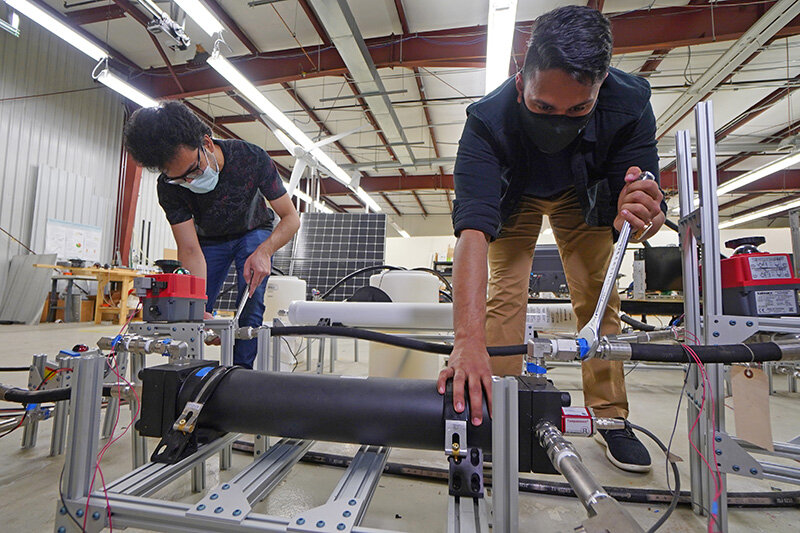Purdue University engineers have developed a “batch reverse osmosis” process that promises better energy efficiency, longer-lasting equipment and the ability to process water of much higher salinity, Tech Xplore reports. It could end up a difference maker in water security around the world. Reverse osmosis is used in many countries; in arid places such as the Middle East, more than half of the fresh drinking water supplies come from desalination facilities. “About a third of the lifetime cost of a desalination plant is energy,” said David Warsinger, a Purdue assistant professor of mechanical engineering. “Even small improvements to the process — a few percentage points of difference — can save hundreds of millions of dollars and help to keep CO2 out of the atmosphere.” During his doctoral work at MIT, Warsinger developed the idea of batch reverse osmosis. Rather than keeping a constant flow of seawater at those high pressure levels, a batch process takes in a set quantity of water at one time; processes it; discharges it; and then repeats the process with the next batch. “Each batch runs for about one to two minutes,” Warsinger said. “We ramp up the pressure over time, reduce the volume over time, and we end up using much less energy to produce the same amount of fresh water.”
https://techxplore.com/news/2021-05-breakthrough-reverse-osmosis-energy-efficient-seawater.html


